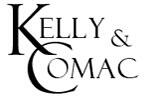Russian hedge fund manager loses £484k SDLT case
The First Tier Tribunal (FTT) has found that an ex-bacon factory was suitable for use as a dwelling and therefore did not qualify for SDLT relief. What’s the full story?

In Tretyakov v Revenue and Customs, Mr Tretyakov (T) purchased a luxurious £5.75m property in London and paid a reduced rate of SDLT on the basis that part of the property was "non-residential2. For SDLT purposes, a property will be considered non-residential if it is not suitable for use as a dwelling - measured at the point of acquisition.
The property was originally a bacon factory, which was converted into a three-storey residence and had several owners before being purchased by T who, on the advice of the estate agent, claimed that the ground floor was non-residential. The ground floor included a garage with two sunken parking spaces, storage space, a 40ft-fully-functioning bar, games room, wine cellar, gym and sauna. The vendors gave evidence at the tribunal, stating that they had been unable to obtain planning permission to turn the ground floor into a residential space, and that it is subject to non-domestic business rates. It was also noted that there was very little natural light and concrete flooring. The vendors confirmed that there had been some commercial use of part of the garage but that the majority of the ground floor was used for private entertaining.
The judge found that while the planning designation of the floor was a factor, it was not determinative. Any commercial use at the time of sale was irrelevant, as were any planning restrictions because the tax treatment is based on whether the ground floor was suitable for use as a dwelling. The wine cellar, games room, bar and other entertainment facilities had been enjoyed by the vendors personally, not for any commercial purpose and so the FTT found that the entire property was suitable for use as a dwelling. The appeal was denied and T was hit with a further SDLT bill of £484,250.
Related Topics
-
Get ready for Making Tax Digital for Income Tax
If you’re one of the (un)lucky individuals who need to join Making Tax Digital for Income Tax (MTD IT) from 6 April 2026, you probably know that this involves submitting regular, digital records to HMRC. But what do you need to do to prepare?
-
CT61
-
Repayment thresholds for student finance confirmed
Repaying student finance can seem complicated, with a number of different plan types each having different repayment thresholds. The thresholds for the forthcoming year have just been confirmed. What’s the full story?

 This website uses both its own and third-party cookies to analyze our services and navigation on our website in order to improve its contents (analytical purposes: measure visits and sources of web traffic). The legal basis is the consent of the user, except in the case of basic cookies, which are essential to navigate this website.
This website uses both its own and third-party cookies to analyze our services and navigation on our website in order to improve its contents (analytical purposes: measure visits and sources of web traffic). The legal basis is the consent of the user, except in the case of basic cookies, which are essential to navigate this website.